Counterfeit $1 Estado de Sonora notes
(This section, and the following sections on the counterfeits of the different denominations (including most of the illustrations), are the result of research by Robert Perigoe. This information originally appeared in the September 2012, December 2012 and March 2013 issues of the Journal of the U. S. Mexican Numismatic Association.)
All the counterfeit $1 notes that Perigoe has identified are in Series 3. Only 20,000 genuine notes were produced, so one dead give-away is a serial number exceeding 20,000. It happens often enough that it is a good first step, but usually further inspection is necessary.
Overriding Characteristics of the Counterfeits
There are three distinct types of counterfeits, but they all share certain characteristics.
The sweep of the printed Randall signature extends beyond the outer frame-line on all three printing positions of the genuine notes, but does not on the counterfeits. (It will be recalled that Randall had a propensity to extend his signature well beyond the frame-lines, often reaching beyond the margins of the higher value notes he was hand-signing.)
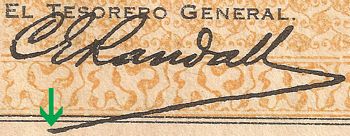 |
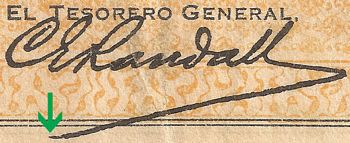 |
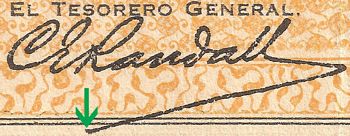 |
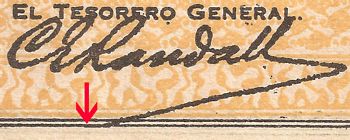 |
The numbering device used on the counterfeits is easily distinguished from any of those used on genuine notes because the dot below the ‘o’ in ‘No’ is circular rather than rectangular, and the serif on the top of the ‘N’ in ‘No’ is wider on the counterfeit.
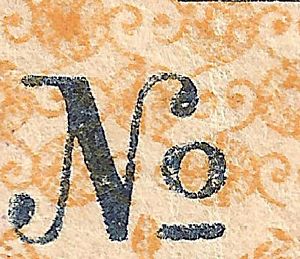 |
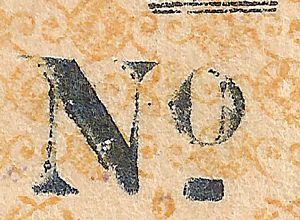 |
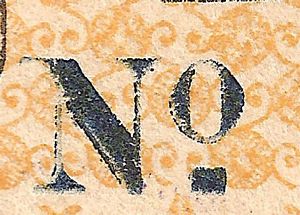 |
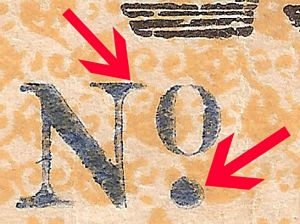 |
The shading under the lettering at the top of the note is fine on the genuine notes but coarse on the counterfeit notes.
 |
 |
|
| Genuine shading | Fake shading |
The one contemporary document, the circular of 20 October 1914, lists the following indications for $1 notes.
| GENUINE | COUNTERFEIT |
| accent of ‘a’ of ‘Pagará’ is slanted (sesgado) to the left | accent slanted to the right |
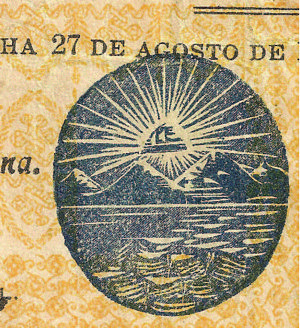 blue of numbering and seal tends towards black (tira a negro) blue of numbering and seal tends towards black (tira a negro) |
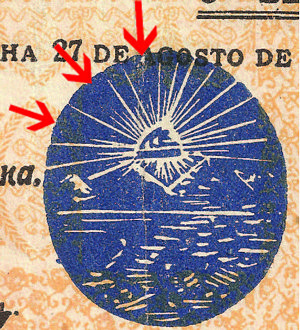 blue is very light blue is very light |
 ‘El Gobernador’ followed by a comma ‘El Gobernador’ followed by a comma |
 'El Gobernador’ followed by a full stop 'El Gobernador’ followed by a full stop |
| typeface of letters and numbers coarser | |
 lines in the shaded area of ‘El Estado de Sonora’ are very thin, separate and the impression is entirely legible lines in the shaded area of ‘El Estado de Sonora’ are very thin, separate and the impression is entirely legible |
 lines are very thick, with some joined to form dark smudges lines are very thick, with some joined to form dark smudges |
| print totally uniform and clear | print very imperfect and smudged |
Since the accent on the 'a' on genuine notes is an acute, it is difficult to divine what the first characteristic refers to. All the others are compatible with Perigoe's findings.
